Oh, God! Enlarge Our Circle of Compassion
It’s not whether animals will survive; it’s whether the man has the will to save them.
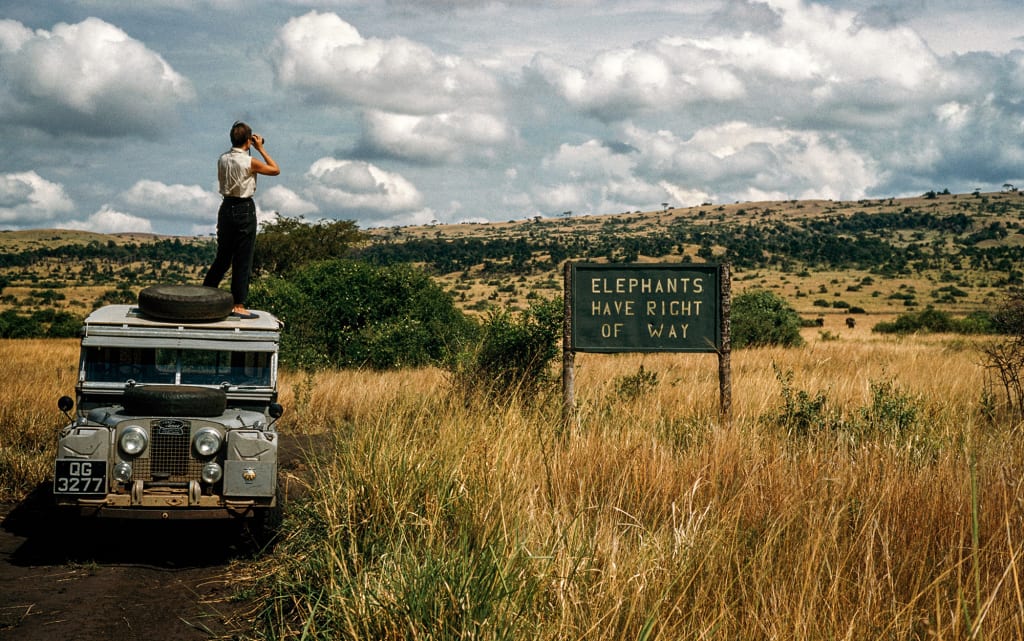
The first person who received a heart transplant from a pig died two months later after a groundbreaking experiment in medical science.
“We are grateful for every innovative moment, every crazy dream, every sleepless night that went into this historic effort,” said died person’s son in the statement. He said, “this story should be a beginning of Hope and not just an end”.
Xenotransplantation involves using nonhuman animals as sources of organs for humans. Many people believe that while using nonhuman beings for human purposes is controversial, still it is worthwhile to sacrifice. The argument that humans have greater ethical weight than nonhumans gives legitimacy to this idea.
Of course, Xenotransplantation is not the only method through which humans place burdens on other creatures to benefit ourselves. Humans kill around 100 billion captive animals each year for food, clothing, study, and other purposes, and we presumably kill over 1 trillion wild animals each year for similar reasons. We may not bother to defend these behaviors regularly. When we do, though, we make the same defense: human lives have a higher ethical weight.
The Indian story of Tiger Conservation
Tiger is the largest cat species and belonged to the genus Panthera. Tiger hunting was regarded as a Royal Sport in British India. Hunting was very much prevalent before the Britishers but what came with them was the guns and explosives. New methods of hunting. To be clear, my aim here is not to argue against the Britishers but to underline the fact that thoughts of Human exceptionalism date back to some decades in history.
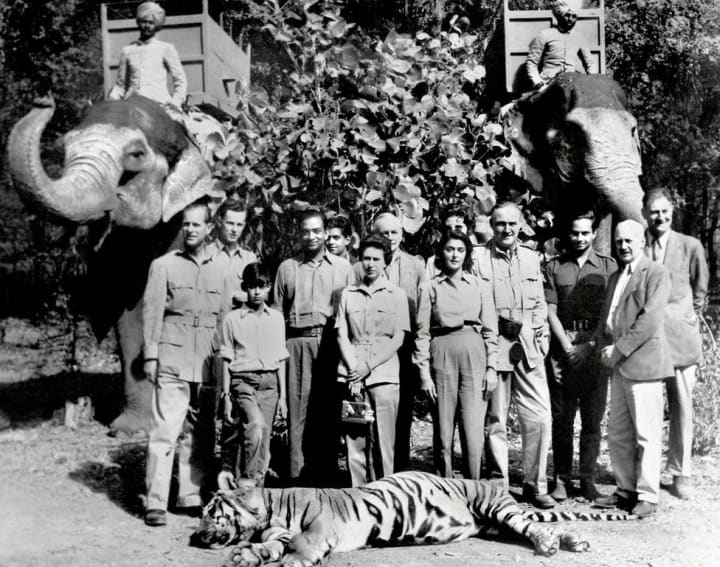
Can we justify the idea that humans carry more ethical weight than others and hunt a tiger for entertainment? Does this follow that we should prioritize ourselves more than we currently do?
The answer is a big No.
Tens of thousands of tigers (Panthera tigris) roamed India and 29 other countries two centuries ago, from the Indonesian marshes to the Russian taiga. Presently, as few as 3,890 individuals are surviving today in the wild of which 93% tiger’s range emptied, according to the 2016 report by the World Wildlife Fund leading to an update on its status as Endangered on the IUCN red list.
Significant reasons for their declining population are Habitat destruction, habitat fragmentation, poaching, and human-wildlife conflict. Even if we argue that the reasons described above support the ethical argument, Hunting for Entertainment does not.
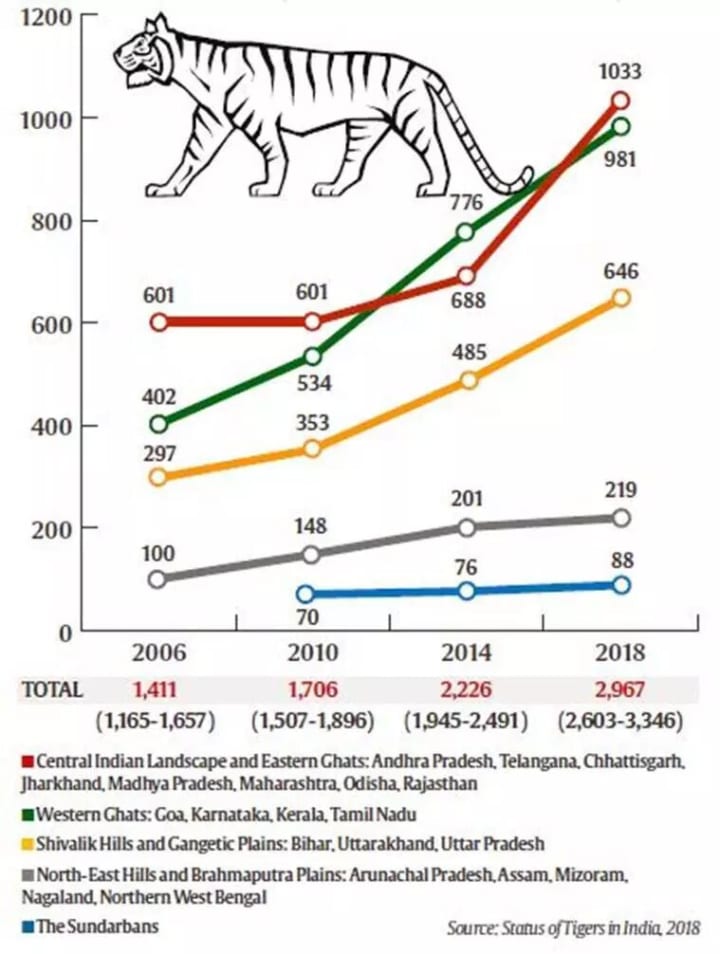
After a century of decline, overall wild tiger numbers are starting to tick upward. According to a recently reported tiger census, there are 2967 tigers in its fauna. India currently hosts the largest tiger population accounting for two-thirds of the world's population. India is the only country that achieved the target of doubling its tiger population owing to its pledge taken at St. Petersberg in 2010.
How did India achieve this success?
Many ethicists offered hierarchies based on capacity-based arguments and relationship-based arguments. But India might have approached the middle of this argument. That means comparing humans and nonhumans is like comparing oranges and apples. Therefore conserving tigers in their form of life only makes sense.
capacities-based arguments :
we should assign human interests extra ethical weight because we have a higher capacity for agency and welfare than other animals.
relationship-based arguments :
we should assign human interests extra ethical weight because we have special bonds and a sense of solidarity with members of our own species.
The conservation of tigers is about more than merely raising their numbers, as more tigers require greater habitat, which is becoming increasingly scarce. It is critical that tiger numbers must not decline and that habitat is not destroyed.
In that effort, India promulgated the Wildlife Protection Act in 1973 and the tiger has been placed in schedule 1 which gives the highest protection to endangered species. In 1973, the government declared the tiger India’s national animal, banned hunting, and set up a conservation scheme called Project Tiger.
From 9 tiger reserves since its formative years, the Project Tiger coverage has increased to 52 at present, spread out in 18 of our tiger range states. This amounts to around 2.23% of the geographical area of our country.
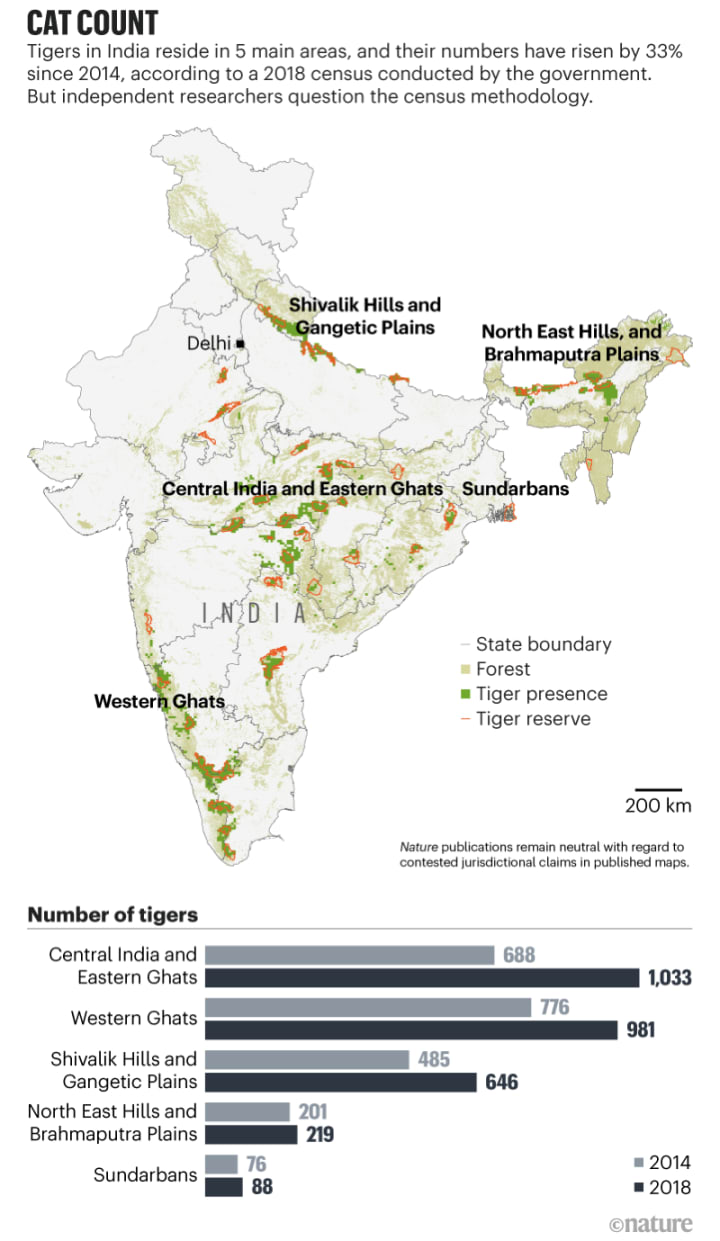
The tiger reserves are constituted on a core/buffer strategy. The core areas have the legal status of a national park or a sanctuary, whereas the buffer or peripheral areas are a mix of forest and non-forest land, managed as a multiple-use area.
And here it shows Middle Ground against the hierarchies based on capacities and relationships. A core area of a tiger reserve has the highest ethical weight to tigers while as we come out of the Core area it shifts to humans. A compromise was made to reduce human-wildlife conflict and habitat destruction. While doing this people’s sensitivities towards wildlife conservation are of utmost importance.
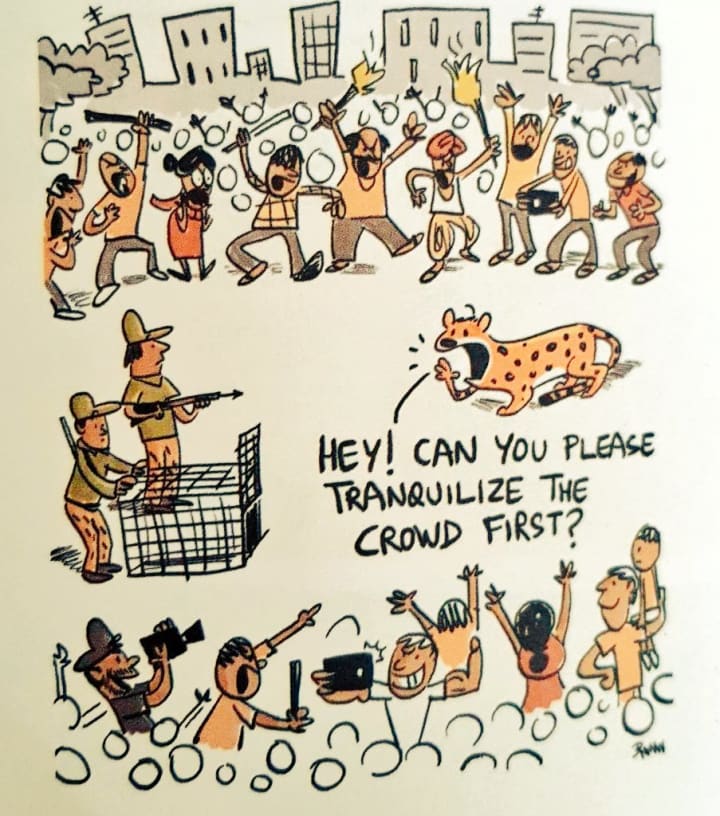
Even if this strategy has accrued results that don't mean it is the best solution to human exceptionalism. It has its flaws and if not, humans are brave enough to prioritize themself.
Even if we accepted a species hierarchy based on capacities and relationships, it does not follow that our current position of human exceptionalism is appropriate. Rather than just asserting that people take precedence, we would need to consider how much ethical weight various species hold. When we do, we might be shocked by what we find.
It was rightly said, "This story should be a beginning of Hope and not just an End”.
..................................
So, what can I write for you? Feel Free to Suggest Topics in the Comment Section. If I could help you with my articles, you can buy me a coffee for support.
Don't forget to Subscribe, Share, and Like!
About the Creator
InfiniteFlame
Writer and enthusiastic about New World. I like to share the values of Democracy, Eqality, Humanity.






Comments (1)
Good job to India for this effort! I dislike hunting and think that humans and other creatures should co-exist.